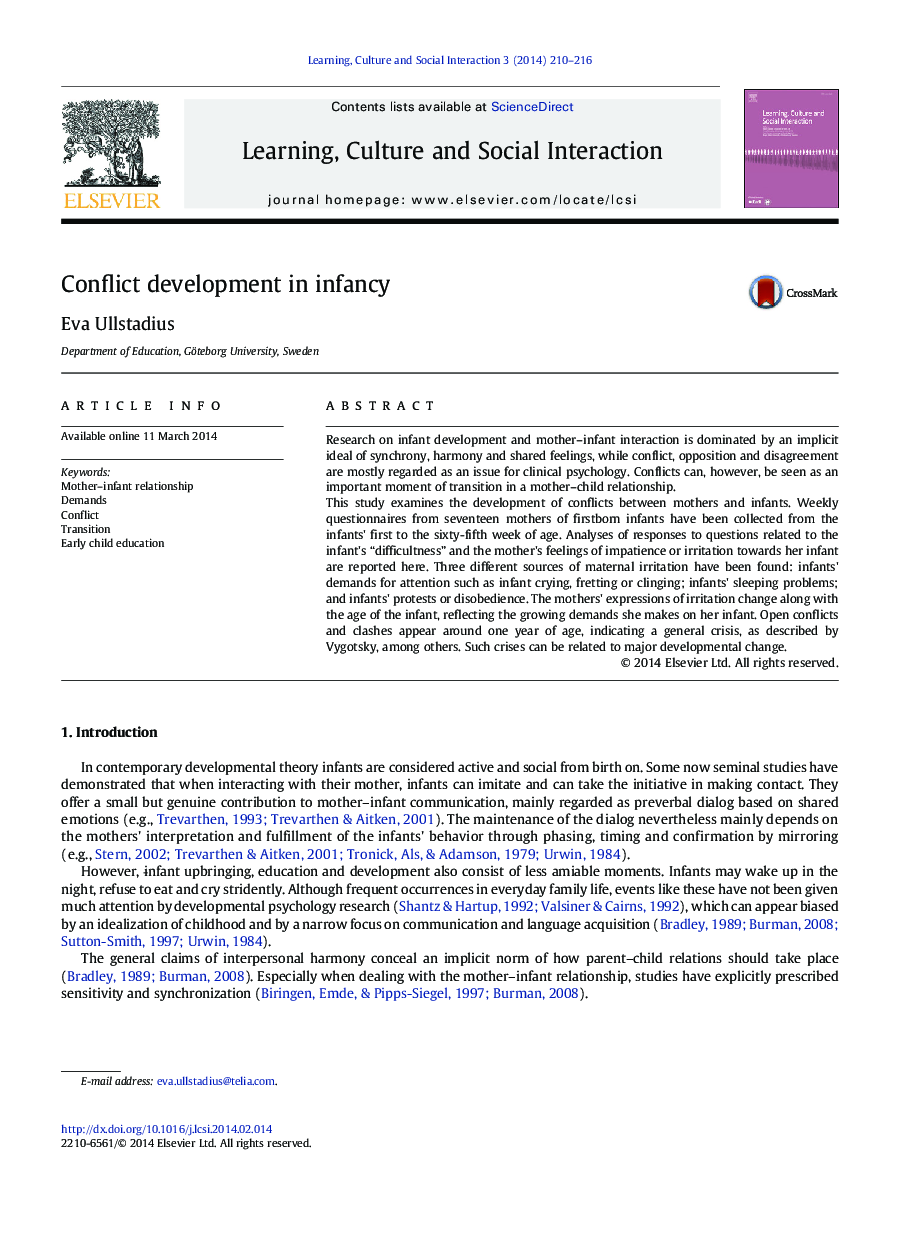| Article ID | Journal | Published Year | Pages | File Type |
|---|---|---|---|---|
| 364395 | Learning, Culture and Social Interaction | 2014 | 7 Pages |
Research on infant development and mother–infant interaction is dominated by an implicit ideal of synchrony, harmony and shared feelings, while conflict, opposition and disagreement are mostly regarded as an issue for clinical psychology. Conflicts can, however, be seen as an important moment of transition in a mother–child relationship.This study examines the development of conflicts between mothers and infants. Weekly questionnaires from seventeen mothers of firstborn infants have been collected from the infants' first to the sixty-fifth week of age. Analyses of responses to questions related to the infant's “difficultness” and the mother's feelings of impatience or irritation towards her infant are reported here. Three different sources of maternal irritation have been found: infants' demands for attention such as infant crying, fretting or clinging; infants' sleeping problems; and infants' protests or disobedience. The mothers' expressions of irritation change along with the age of the infant, reflecting the growing demands she makes on her infant. Open conflicts and clashes appear around one year of age, indicating a general crisis, as described by Vygotsky, among others. Such crises can be related to major developmental change.
